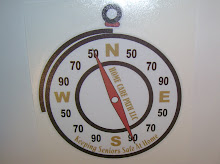Advanced Alzheimer's disease is a progressive process that can cause the senior to lose the capacity for rational decision making. An incapacitated senior would then need a substitute decision maker. A diagnosis of Alzheimer's disease is not sufficient to consider a senior incapacitated.
The definition of an incapacitated senior as specified by the Uniform Probate Code is required. The (UPC) Uniform Probate Code is a uniform act drafted by the National Conference of Commissioners on Uniform State Laws governing inheritence and the decedents estates in the United States. The primary purposes of the act are to streamline the probate process and to standardize and modernize various state laws governing wills, trusts, and intestacy (being or dying without a valid will).
Health counselors encourage seniors to complete a legal document known as a durable power of attorney prior to losing mental function. Special and Health Care Power Of Attorney can be made durable by adding certain text to the document, this allows the document to remain in effect if the senior becomes incompetent.
Health counselors enourage the senior to have
1. Health Care Power Of Attorney - and
2. Durable Power Of Attorney
in place before losing mental function as a way to prevent involuntary guardianship.
If the senior becomes incapacitated and has no power of attorney, the courts may appoint a guardian (sometimes called conservator) of the person and or the estate. A court will only impose guardianship if faced with compelling evidence that the senior cannot care for themselves.
Guardianship is established by asking (petitioning) the court to hold a compentency hearing . Medical information is presented to demonstrate the senior can no longer manage their own affairs. If the court agrees, it appoints a guardian , which is usually the petitioner. Guardianship usually continues until the senior regains the capacity to handle their own affairs, which seldom happens.
The duties and responsibilities of the newly appointed guardian will be listed in the appointment document. Under guardianship the court provides oversight for the seniors money and assets. Decisions involving spending of money or selling assets usually require courts permission.
Tuesday, August 23, 2011
Subscribe to:
Post Comments (Atom)

No comments:
Post a Comment